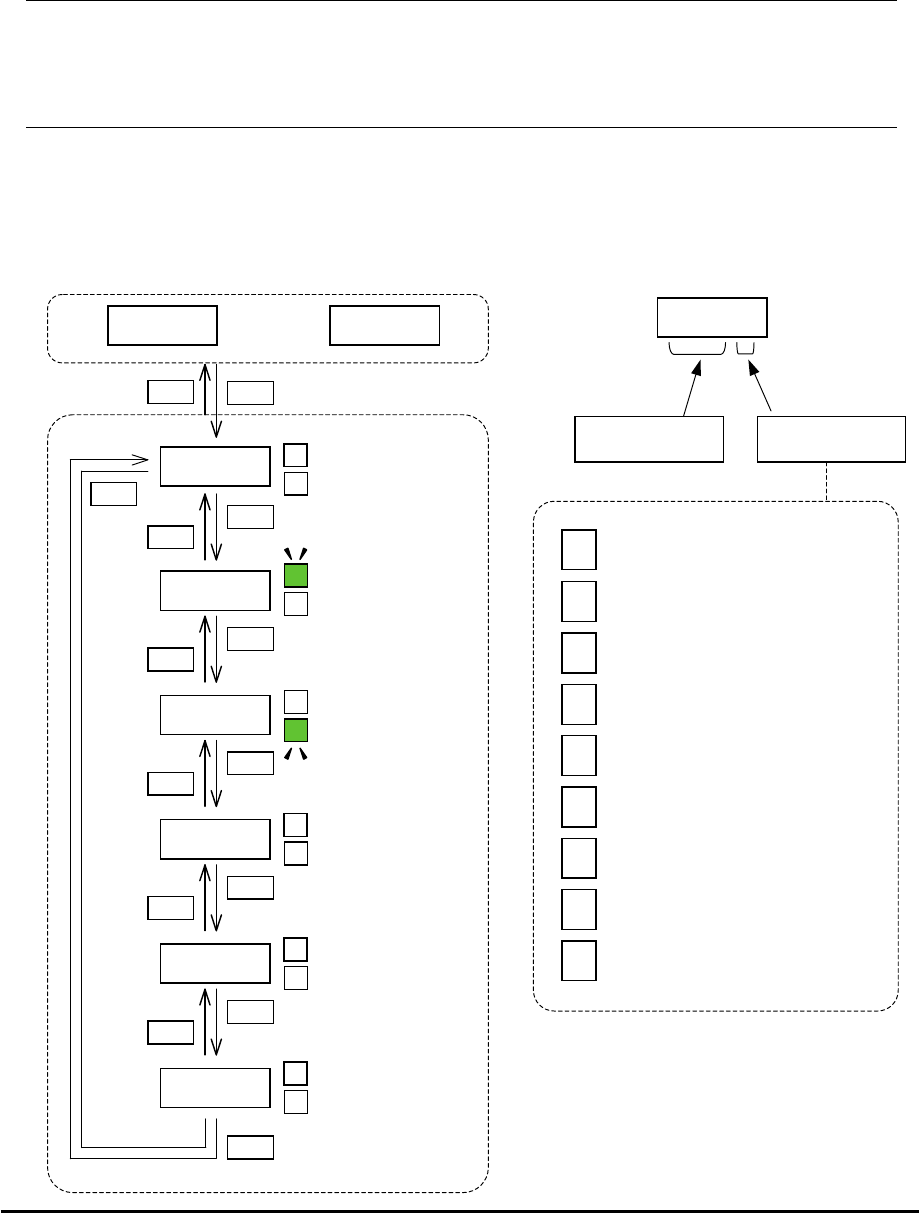
84
Monitoring Trip Events, History, & Conditions
Trip History and Inverter Status
We recommend that you first find the cause of the fault before clearing it. When a fault occurs, the
inverter stores important performance data at the moment of the fault. To access the data, use
the monitor function (dxxx) and select d081 details about the present fault. The previous 5 faults
are stored in d082 to d086. Each error shifts d081-d085 to d082-d086, and writes the new error
to d081.
The following Monitor Menu map shows how to access the error codes. When fault(s) exist,
you can review their details by first selecting the proper function: D081 is the most recent,
and D086 is the oldest.
E072
d081
U
V
SET
ESC
U
V
Trip history 1 (Latest)
Error code
Hz
A
Hz
A
Hz
A
Hz
A
Hz
A
Hz
A
...
Trip history 6
d086
.
.
6000
.
U
V
400
U
V
2840
U
V
18
U
V
15
.
Output frequency
Output current
DC bus voltage
Elapsed RUN time
Elapsed power-
ON time
Trip cause
Inverter status
at trip point
.0
Note: Indicated inverter status could be
different from actual inverter behavior.
e.g. When PID operation or frequency given
by analog signal, although it seems constant
speed, acceleration and deceleration could
be repeated in very short cycle.
.1
.2
.3
.4
.5
.6
.7
.8
E072
.
Power up or initial processing
Stop
Deceleration
Constant speed
A
cceleration
0Hz command and RUN
Starting
DC braking
Overload restriction


















